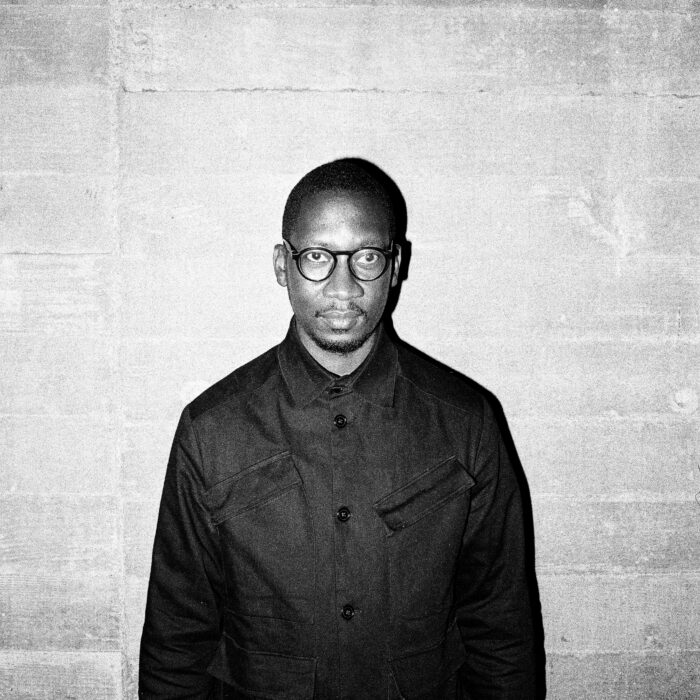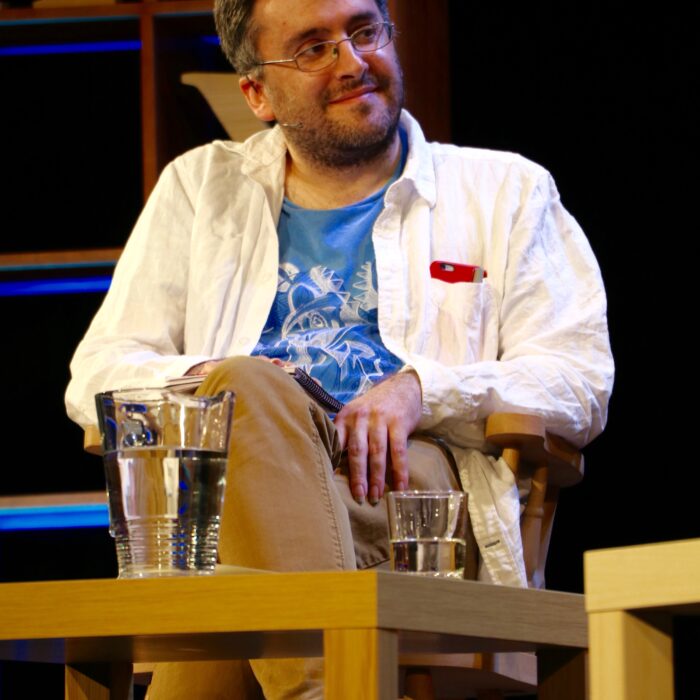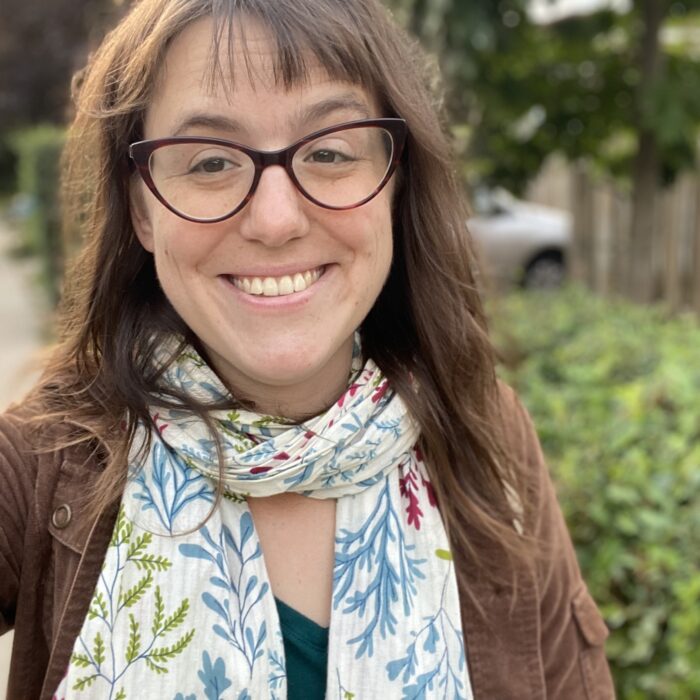You have no items in your cart. Want to get some nice things?
Go shopping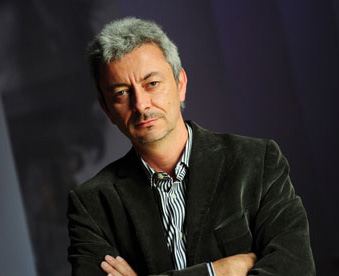
The Islands by Carlos Gamerro had been hovering around my consciousness for a few months before I picked it up and finally realised what I had been missing. You can read my review for Litro here.
Born in Buenos Aires in 1962, just fourteen years before the beginning of a brutal and repressive dictatorship that would culminate in the Falklands conflict, Carlos Gamerro is an outspoken and celebrated contemporary writer who, in The Islands, explores the unsettling hold the Falklands conflict has over Argentine society. He has written five further novels, a collection of short stories and a range of literary criticism, and translates literature from English to Spanish. He also adapted The Islands for the stage.
As Carlos is based in Buenos Aires, we had to “meet” on Skype. I talk to him about The Islands, detectives, investigating Argentine society and writing about the ghosts of an alternative past.
I really enjoyed The Islands. It’s a surreal and exhilarating read, and though it’s a lot of fun it makes you work hard as a reader. Do you have a reader in mind when you write?
Yes, of course. I want to make difficult stuff as easy as possible for that reader, but what I’m not prepared to do is discard something because it will be hard to understand or stomach. In that sense, the beginning of The Islands is a bit of a warning. It begins with a guy who has preserved one of his turds and lives in a tower made of mirrors and buggers his own adult son. So if you don’t like it or cannot take it you might as well stop reading now—and don’t say I didn’t warn you!
The character you mention, Tamerlán, is extreme in many ways. Your work is often described as “political”, and here’s a power-mad psychopath in a mirrored tower. Do you think he represents a sort of corruption?
No, I wouldn’t call Tamerlán corrupt. Corruption means that something that was initially good has been degraded or debased or distorted. The political and economic power system of the 80s and 90s in Argentina—and I suppose the same could be said for most of the world—was monstrously healthy and sane. This is what economic and political power are all about when the moral fetters are removed. Tamerlán might be considered evil or monstrous in the same way Machiavelli was seen as evil or monstrous in, say, Shakespeare’s day—because they both give you the naked truth, without pretence.
That idea of pretence is found throughout The Islands and you’ve said before that you originally conceived this as a detective novel. Was the truth-seeking element always present for you?
Well, what I find interesting about the detective novel is precisely its truth-seeking element. This is why the genre has developed in so many directions and doesn’t seem to dry up. It is not because all of us are interested in the world of crime; this is part of its appeal but not the whole story. The genre is about human knowledge: how we attain it, what its limitations are, how we might prefer a dramatic narrative to the simple factual truth. On the other hand, a detective, whether a professional one or a circumstantial one, is practically the only figure in fiction today that can tie together the different strands of our divided societies—divided socially, racially, geographically, religiously, culturally.
A large metropolis like London or Buenos Aires cannot really be known by any of its inhabitants, unless he is forced to visit slum and palace alike in search of something. Now, because the idea of a private eye is impossible in Argentine fiction (all private eyes are ex-cops, all cops corrupt), a cop or ex-cop in search of the truth is for us a bad joke, a fictional implausibility. Because of this, I chose a hacker, a hacker who must turn detective against his will and better judgement.
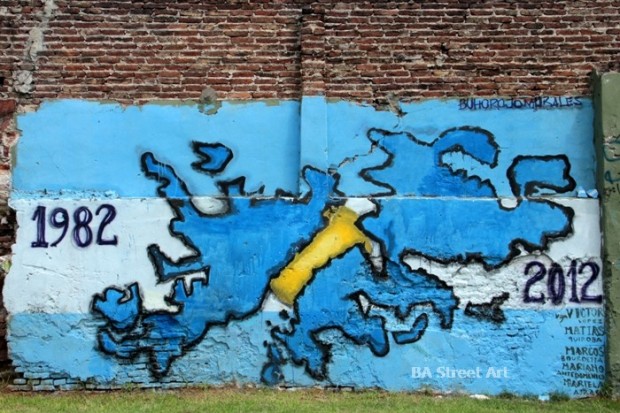
This hacker you mention, Felipe, is also a Falklands/Malvinas conflict veteran. So, as well as examining contemporary Buenos Aires, Felipe is also investigating his past, reopening old wounds, searching for a kind of truth there.
For me, there was a challenge here. I am part of what’s known as the generation of ’82—the generation that got sent to war—and had I not asked for my military service to be deferred, my fate might have been that of Felipe’s. When I was writing the novel, I had a feeling of “There but for the grace of God go I”, so I invested Felipe—an individual, not just a symbol—with my own imaginary experience.
On the other hand, I met many ex-combatants and talked to them about their experiences. This was a time (some eight years after the war) when nobody wanted to listen to them; they were the symbol of defeat, and even the Left saw something fishy in them, since they had participated in a war conducted by war criminals. So they were eager to talk—only you could see they felt you wouldn’t understand. You realised they felt that all the words in the world would not make you see what they had seen, feel what they had felt. When they spoke with each other very few words were needed. There was a world of experience behind each word.
So this was the challenge: to make, through words, this experience that was not mine, mine, to believe in it, and to make others believe in it.
It sounds almost as though you were writing an account of the life you could have had…
Yes, the way I usually put it is that it is autobiography in reverse: the story of what might have happened, even of what should have happened, had fate not been so careless as to miss me. A lot of the best fiction is like this. I mean, if you’ve lived through it, why would you want to do it a second time in writing? Once is usually enough. Fiction does not only exist in literature—we’re creating fiction when we wonder what our life might have been like if, twenty years ago, we had left for Norway or Borneo as we had planned… or when we meet a person we like and in thirty seconds we have lived out a whole imaginary life with them, right down to our grandchildren. These ghostly selves are always with us, and sometimes one feels like writing about them. Much more interesting than writing about past selves or real people!
And in terms of national history, countries that feel they have failed, or which are not where they should be, are always agonising about the road not taken. They write their history in the conditional or the subjunctive.
That idea about writing about “alternative realities” is something that features heavily in Argentine literature. Which writers—Argentine or other—have most influenced you?
I don’t tend to talk about “influence”—that is the task of the critic! A lot of the influence you receive is unconscious, anyway. I recently reread Moby Dick, which I had read a couple of times before getting started on The Islands and hadn’t read since, and I was shocked to see how many elements of Ahab’s mad quest had found their way into the “Malvinas obsession” some of my military characters—notably Major X—have.
But what I can talk about is about models I choose: authors to guide me through a specific novel. In the case of The Islands I definitely tried to learn from writers like William Burroughs and Thomas Pynchon. I was writing a war novel and in Argentina we had no war literature to speak of. But as the Malvinas/Falklands war was so weird on so many levels, I knew I had no use for straight realism, so I went for Pynchon’s Gravity’s Rainbow and Michael Herr’s Dispatches and Curzio Malaparte’s The Skin—and Apocalypse Now, of course.
You wrote The Islands fifteen years ago, and it’s set another six years before that. Then you adapted it for the stage in 2011 while working with translator Ian Barnett on an English edition. Has working in so many different formats and over a long period time made you see it in a different light at all?
I always thought of Las Islas as an omnivorous novel, a protean novel, one that would never achieve a fixed form. This is not true of all my novels. An Open Secret, for example, is pretty fixed and definitive. I wouldn’t think of changing a word. Contingency dominates The Islands: it is the novel it is, but it could be many others. So every time I go back to it I try new things. I changed much of the plot—but not many of the scenes—for the play, and I cut the original version by some 100 pages when working with Ian Barnett on the English version.
Last question: Do you have a favourite novel, and if so, what?
God, that’s the hardest of them all! It depends on what I’m writing, I suppose, but I must admit that my three last novels—La Aventura de los Bustos de Eva, Un Yuppie en la Columna del Che Guevara and the one I’m working on at the moment, a story about Shakespeare and Fletcher’s lost play—are all variations on Don Quixote. So I guess you could say that Don Quixote has been my favourite novel for a while. Not very original, I’m afraid, but truthful!
The Islands was originally published in Spanish as Las Islas. This English version, translated by Ian Barnett, was published on 29 May 2012 by And Other Stories (UK) in paperback. Readers in the US can buy it via Amazon. More about the author at www.carlosgamerro.com.
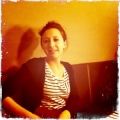
About Bella Bosworth
Bella Whittington reads and reviews a bit of everything, but is particularly interested in literary fiction, translations and short stories. After living in Spain for a year, she now works as an assistant editor for Transworld Publishers in London. She has also contributed to Thresholds, the University of Chichester's international short story forum, and the Harker.

